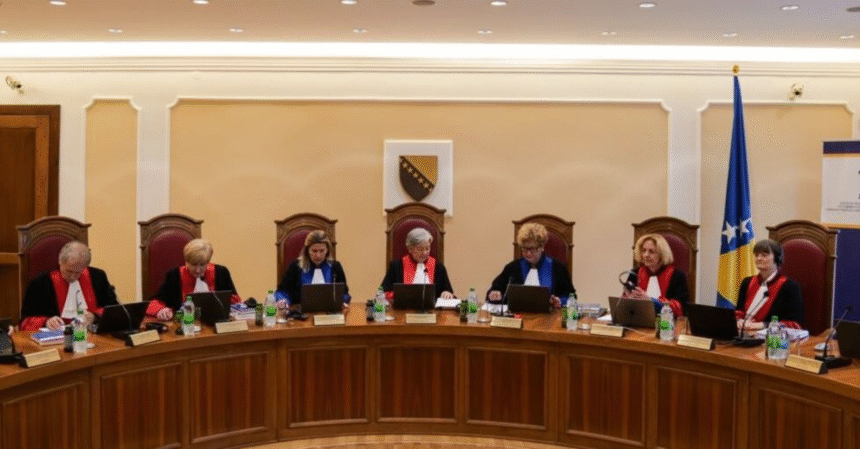The Constitutional Court of Bosnia and Herzegovina on May 29 annulled several controversial laws adopted by the National Assembly of Republika Srpska (RS), declaring them unconstitutional. These laws included provisions for the establishment of a special registry and rules on the transparency of non-profit organizations, a law prohibiting the implementation of state-level laws and institutions deemed “unconstitutional” by RS authorities, and amendments to the RS Criminal Code that introduced a new criminal offense for non-compliance with decisions made by RS institutions.
The Court found that the law targeting non-governmental organizations was nearly identical in substance to the Russian “foreign agent” law, which has previously been criticized and rejected by the European Court of Human Rights. The ruling stated that the terms used in the law such as “non-profit organizations,” “foreign agents,” and “political activities ” were overly broad and vague, enabling public authorities to arbitrarily classify any civil society activity as prohibited and subject to sanctions, including the suspension of activities and criminal responsibility of organization leaders.
Regarding the law passed by RS authorities to reject the implementation of certain Bosnian state institutions, the Court ruled it null and void, emphasizing that it effectively excludes the application of key state-level laws, including those governing the High Judicial and Prosecutorial Council, the State Investigation and Protection Agency (SIPA), the Court of Bosnia and Herzegovina, and the State Prosecutor’s Office. The Court underscored that while the return of certain competencies to entity level is not, in itself, unconstitutional, such decisions fall under the exclusive jurisdiction of the Parliamentary Assembly of Bosnia and Herzegovina. It concluded that this RS law represents a direct denial of Bosnia and Herzegovina’s sovereignty and its constitutional authority in the areas of justice and security.
The Court also invalidated a provision in the RS Criminal Code that criminalized the failure to implement decisions of RS institutions. It found that the law was worded so broadly that it could impose criminal liability for the failure to implement any decision by any RS body, regardless of its legality or constitutionality. This was deemed problematic as it effectively placed the decisions of RS institutions above those of state-level institutions, which hold superior legal authority in Bosnia and Herzegovina’s legal framework.
These laws were passed following the controversial conviction of RS President Milorad Dodik in February for ignoring decisions issued by the High Representative, Christian Schmidt, and signing decrees that reinstated laws Schmidt had previously annulled. The adoption of these laws was widely seen as an attempt to obstruct the implementation of decisions made by the Constitutional Court and the High Representative within RS territory. In response, the Prosecutor’s Office of Bosnia and Herzegovina launched investigations into the RS leadership for attempting to undermine the constitutional order. Arrest warrants were issued for their failure to appear in court, and international sanctions have also been imposed.
An appeal in Dodik’s case has been scheduled for June 12, after which the final verdict is expected.







